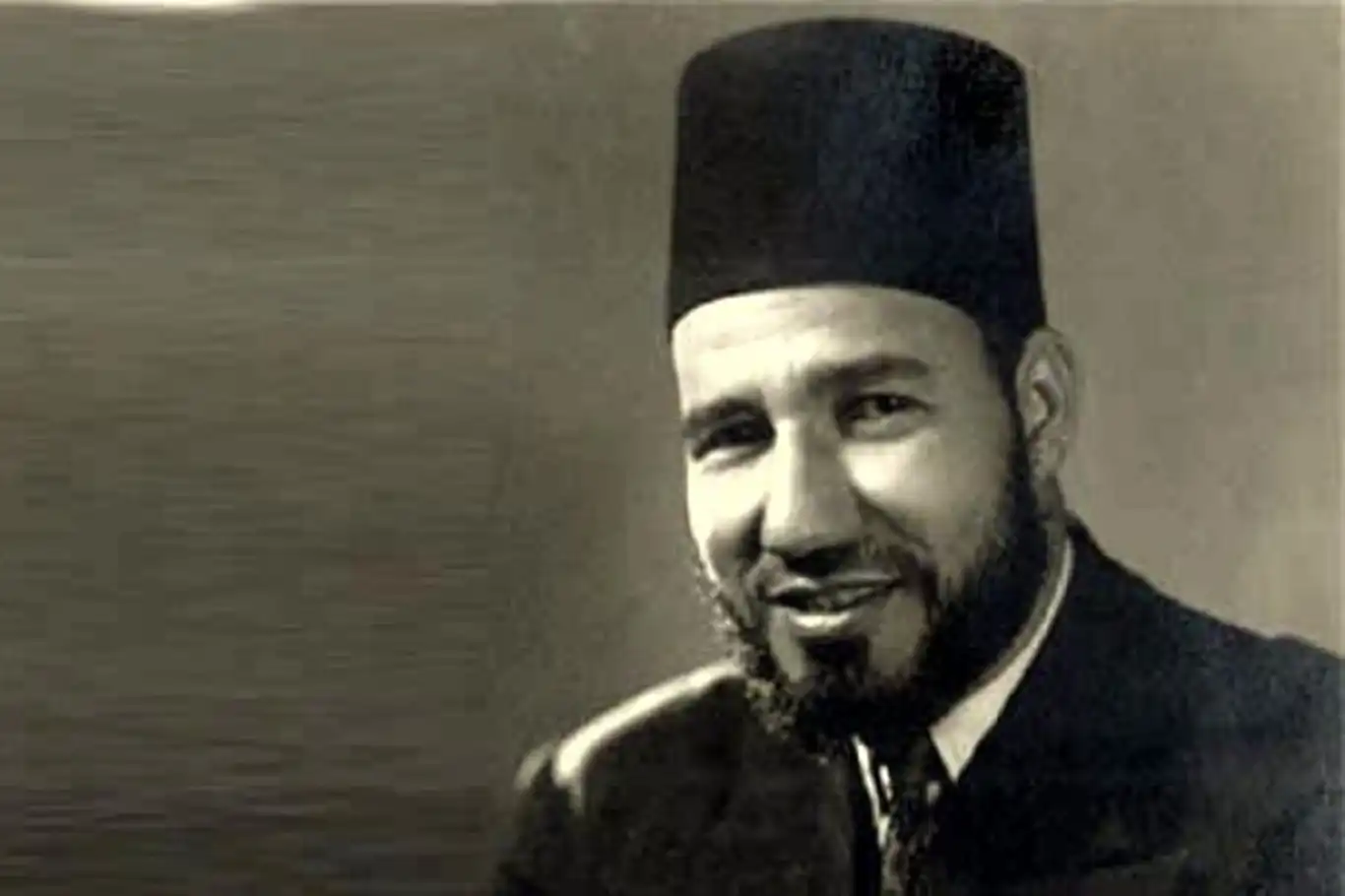Hassan Al-Banna: The visionary leader and martyr of Islamic revival


Today marks the 76th anniversary of the martyrdom of Hassan Al-Banna, the Egyptian political and religious leader who founded the Muslim Brotherhood.
Assassinated by the Egyptian secret police on February 12, 1949, Al-Banna’s legacy remains deeply ingrained in the struggle for Islamic revival and justice.
A Visionary Reformer and Pioneer of Islamic Thought
Sheikh Hassan Ahmed Abdel Rahman Muhammed al-Banna, known as Hassan al-Banna, was not merely a schoolteacher and imam but a revolutionary thinker who reshaped Islamic discourse in the modern era. His ideas laid the foundation for one of the most significant Islamic movements of the 20th century—the Muslim Brotherhood.
Al-Banna championed Islam as a comprehensive way of life, advocating for the application of the Quranic principles in governance, economics, and society. He called for the revival of Islamic values, the establishment of social justice, and the eradication of colonial influence that sought to erode Muslim identity. His vision emphasized the importance of faith, activism, and collective responsibility in building a just and moral society.
Defender of Justice and Social Welfare
Unlike many political figures of his time, Al-Banna did not seek power for personal gain. Instead, he dedicated himself to uplifting the oppressed and establishing institutions to serve the people. He advocated for economic justice through Islamic fiscal policies such as zakat, ensuring wealth was redistributed to reduce inequality. Under his leadership, the Muslim Brotherhood became a force for societal change, promoting education, healthcare, and social services for the underprivileged.
Al-Banna fiercely opposed Western materialism and colonialism, resisting British imperialism that sought to subjugate Egypt and the broader Muslim world. He inspired a new generation to reclaim their Islamic identity, urging them to resist oppression through moral and intellectual reform.
A Legacy of Strength and Sacrifice
Born on October 14, 1906, in Mahmudiyya, Egypt, Al-Banna was influenced by his father, Sheikh Ahmad Abd al-Rahman al-Banna, a respected Hanbali scholar. His intellectual journey was enriched by Sufi teachings and the revolutionary ideas of Islamic reformers such as Rashid Rida. Even as a young boy, he demonstrated leadership, participating in the Egyptian Revolution of 1919 and organizing youth movements dedicated to moral and social reform.
Despite economic hardships, Al-Banna pursued his education and became a teacher. However, he was not content with mere academic pursuits—his true calling was in mobilizing the masses. In 1928, he founded the Muslim Brotherhood in response to the grievances of Egyptian workers suffering under foreign exploitation. What began as a small group in Ismailia rapidly grew into a nationwide movement, with half a million active members within a decade.
The Champion of Palestine and Anti-Colonial Resistance
One of Al-Banna’s most remarkable contributions was his unwavering support for the Palestinian cause. He led mass mobilization efforts against the Zionist occupation and called on Muslims worldwide to stand in solidarity with the Palestinian people. Under his leadership, the Muslim Brotherhood played a crucial role in the 1936–1939 Arab Revolt and later sent volunteers to fight in the 1948 Arab-Israeli War.
Al-Banna understood that the struggle for Palestine was not merely a territorial conflict but a battle for the soul of the Islamic world. He rejected the false notion that jihad was confined to the heart, emphasizing that Muslims had a duty to resist colonial aggression through all legitimate means.
A Martyr for the Cause of Islam
As Al-Banna’s influence grew, so did the fears of the Egyptian monarchy and British-backed elites. The Muslim Brotherhood’s success in uniting the masses against oppression led to its banning in 1948. Shortly after, Prime Minister Nokrashy Pasha was assassinated by an individual claiming allegiance to the Brotherhood, an act which Al-Banna condemned as un-Islamic.
Despite his call for justice and non-violence, Al-Banna himself became a target. On February 12, 1949, he was lured to a meeting under false pretenses and ambushed by government agents. Shot in cold blood, he was left to die without medical aid. His funeral was deliberately restricted, with only his family allowed to attend under heavy police surveillance.
The Eternal Legacy of Al-Banna
Though martyred, Al-Banna’s ideas and movement did not die with him. His call for Islamic revival, social justice, and resistance against oppression continues to inspire millions. The institutions he established and the ideals he championed remain central to contemporary Islamic thought and activism.
Hassan Al-Banna’s life was one of unwavering faith, relentless activism, and ultimate sacrifice. His legacy serves as a testament to the enduring power of Islamic principles in the face of adversity. Today, as we remember his martyrdom, we also renew our commitment to the ideals he so passionately fought for—justice, dignity, and the revival of the Islamic spirit. (ILKHA)
LEGAL WARNING: All rights of the published news, photos and videos are reserved by İlke Haber Ajansı Basın Yayın San. Trade A.Ş. Under no circumstances can all or part of the news, photos and videos be used without a written contract or subscription.
A year has passed since the martyrdom of Sayyed Hassan Nasrallah, the Secretary-General of Hezbollah and the iconic leader of the Islamic Resistance in Lebanon.
It has been thirty-two years since the village of Başbağlar, nestled in the mountainous region of Erzincan, Türkiye, was thrown into the depths of unimaginable horror.
As the world marks the 100th anniversary of the execution of Sheikh Said of Palu and his 47 companions, Muslims across the globe are gathering to honor a defining moment in Islamic resistance history.
The Hijrah—the historic migration of Prophet Muhammad (peace be upon him) from Mecca to Madinah in 622 CE—stands as a luminous milestone in Islamic history, igniting the flame of hope in the hearts of early Muslims and serving as an enduring example for all generations of believers.